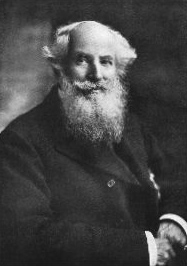Oxford English Dictionary
Oxford English Dictionary (OED) is a comprehensive dictionary of the English language, notable for its depth of historical and etymological detail. It traces the development of English from approximately 1150 AD to the present day, providing a detailed account of the meanings, history, and pronunciation of words from across the English-speaking world.
History[edit | edit source]
The idea for a comprehensive English dictionary was first proposed by members of the London Philological Society in the late 19th century, with the aim of cataloging the evolving English language in its entirety. The project was undertaken by the Oxford University Press, and the first volume was published in 1884. The initial plan was to complete the dictionary in ten years, but it was not until 1928 that the first edition, consisting of ten volumes, was finally published.
Structure[edit | edit source]
The OED is not just a general dictionary but an historical dictionary, providing a chronological record of each word's development over time. Each entry lists the word's various meanings, its etymology, and quotations from a wide range of sources to illustrate its usage. The dictionary is continually revised and updated to reflect changes in English usage and new discoveries in linguistics.
Online Version[edit | edit source]
In addition to the printed edition, the OED has been available online since 2000. The online version is updated quarterly with new and revised entries. It offers advanced search features, allowing users to explore the dictionary's vast resources in ways not possible with the print edition.
Significance[edit | edit source]
The OED is widely regarded as the authoritative source on the English language. It is an invaluable resource for linguists, historians, writers, and anyone with a deep interest in the development and usage of English. Its comprehensive coverage of English vocabulary, including words from all over the English-speaking world, makes it an essential reference for understanding the richness and diversity of the English language.
Editions[edit | edit source]
Over the years, the OED has been updated in a series of editions. The second edition was published in 1989, and the third edition has been in progress since 2000. The work on the third edition involves revising existing entries and adding new words and meanings that have emerged in the English language.
Criticism[edit | edit source]
While the OED is celebrated for its comprehensive coverage and historical approach, it has also faced criticism. Some critics argue that it is slow to add new words and meanings, reflecting a conservative approach to the evolution of English. Others have pointed out gaps or biases in its coverage, particularly in relation to words from non-Western cultures.
Future[edit | edit source]
The ongoing revision of the OED, with its commitment to reflecting the English language as it is used today, ensures that it remains a dynamic and evolving resource. The move towards digital publication has opened up new possibilities for updating and expanding the dictionary, making it more accessible to users around the world.
| This article is a stub. You can help WikiMD by registering to expand it. |
Search WikiMD
Ad.Tired of being Overweight? Try W8MD's physician weight loss program.
Semaglutide (Ozempic / Wegovy and Tirzepatide (Mounjaro / Zepbound) available.
Advertise on WikiMD
|
WikiMD's Wellness Encyclopedia |
| Let Food Be Thy Medicine Medicine Thy Food - Hippocrates |
Translate this page: - East Asian
中文,
日本,
한국어,
South Asian
हिन्दी,
தமிழ்,
తెలుగు,
Urdu,
ಕನ್ನಡ,
Southeast Asian
Indonesian,
Vietnamese,
Thai,
မြန်မာဘာသာ,
বাংলা
European
español,
Deutsch,
français,
Greek,
português do Brasil,
polski,
română,
русский,
Nederlands,
norsk,
svenska,
suomi,
Italian
Middle Eastern & African
عربى,
Turkish,
Persian,
Hebrew,
Afrikaans,
isiZulu,
Kiswahili,
Other
Bulgarian,
Hungarian,
Czech,
Swedish,
മലയാളം,
मराठी,
ਪੰਜਾਬੀ,
ગુજરાતી,
Portuguese,
Ukrainian
Medical Disclaimer: WikiMD is not a substitute for professional medical advice. The information on WikiMD is provided as an information resource only, may be incorrect, outdated or misleading, and is not to be used or relied on for any diagnostic or treatment purposes. Please consult your health care provider before making any healthcare decisions or for guidance about a specific medical condition. WikiMD expressly disclaims responsibility, and shall have no liability, for any damages, loss, injury, or liability whatsoever suffered as a result of your reliance on the information contained in this site. By visiting this site you agree to the foregoing terms and conditions, which may from time to time be changed or supplemented by WikiMD. If you do not agree to the foregoing terms and conditions, you should not enter or use this site. See full disclaimer.
Credits:Most images are courtesy of Wikimedia commons, and templates, categories Wikipedia, licensed under CC BY SA or similar.
Contributors: Prab R. Tumpati, MD






